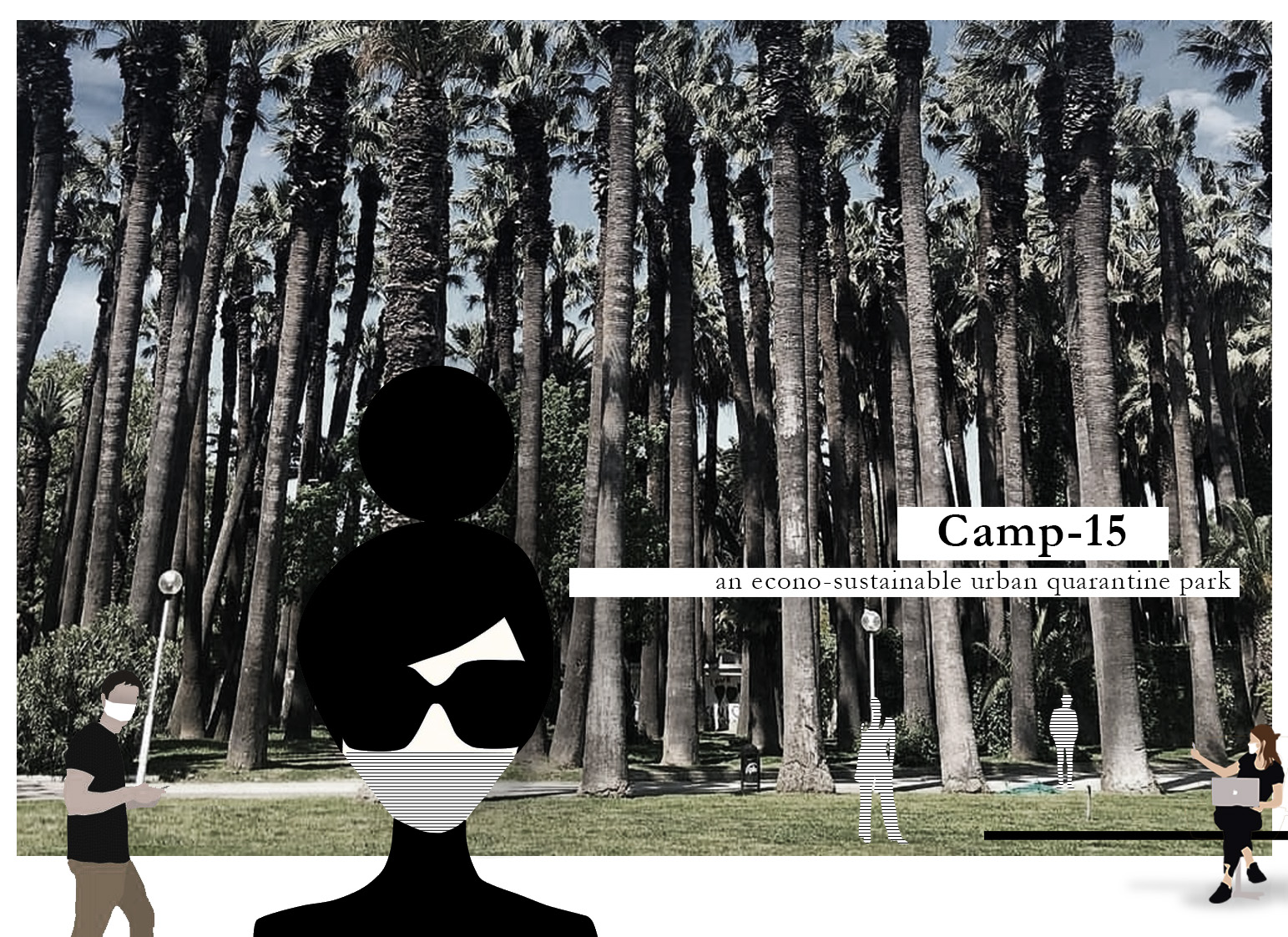
CAMP-15
Kulturpark IZMIR
Type: Adaptive Re-UseDate: 2020
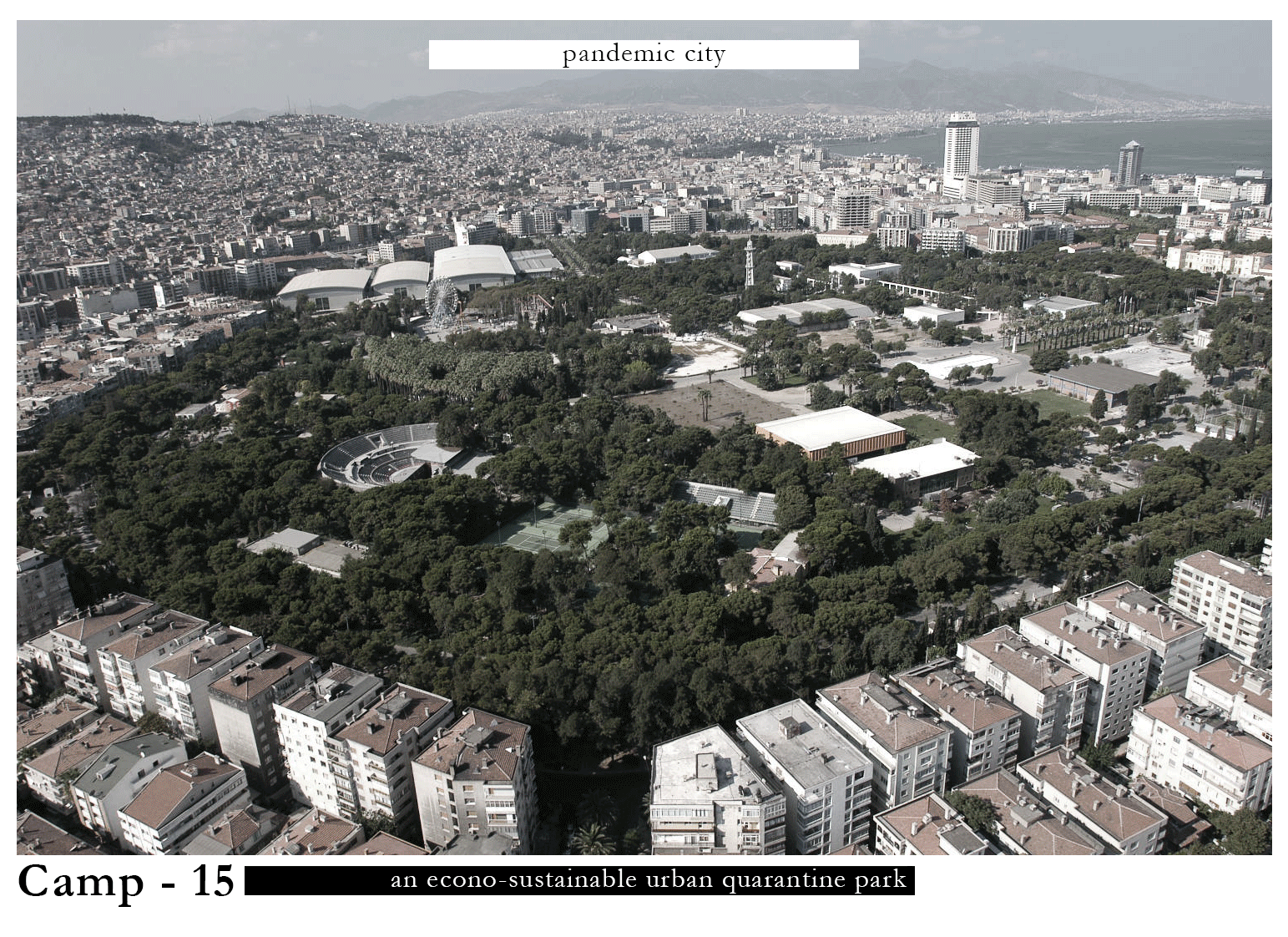
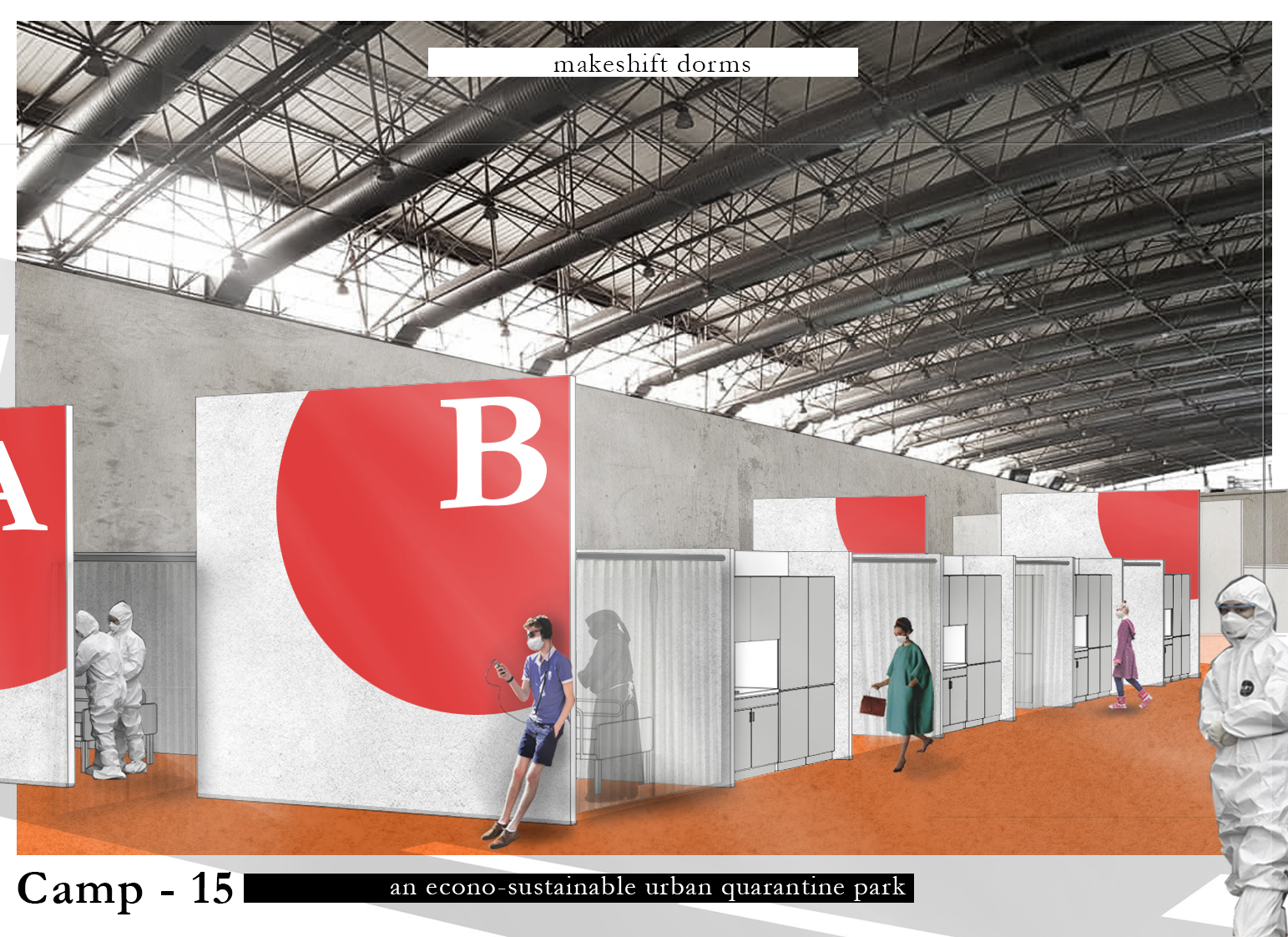
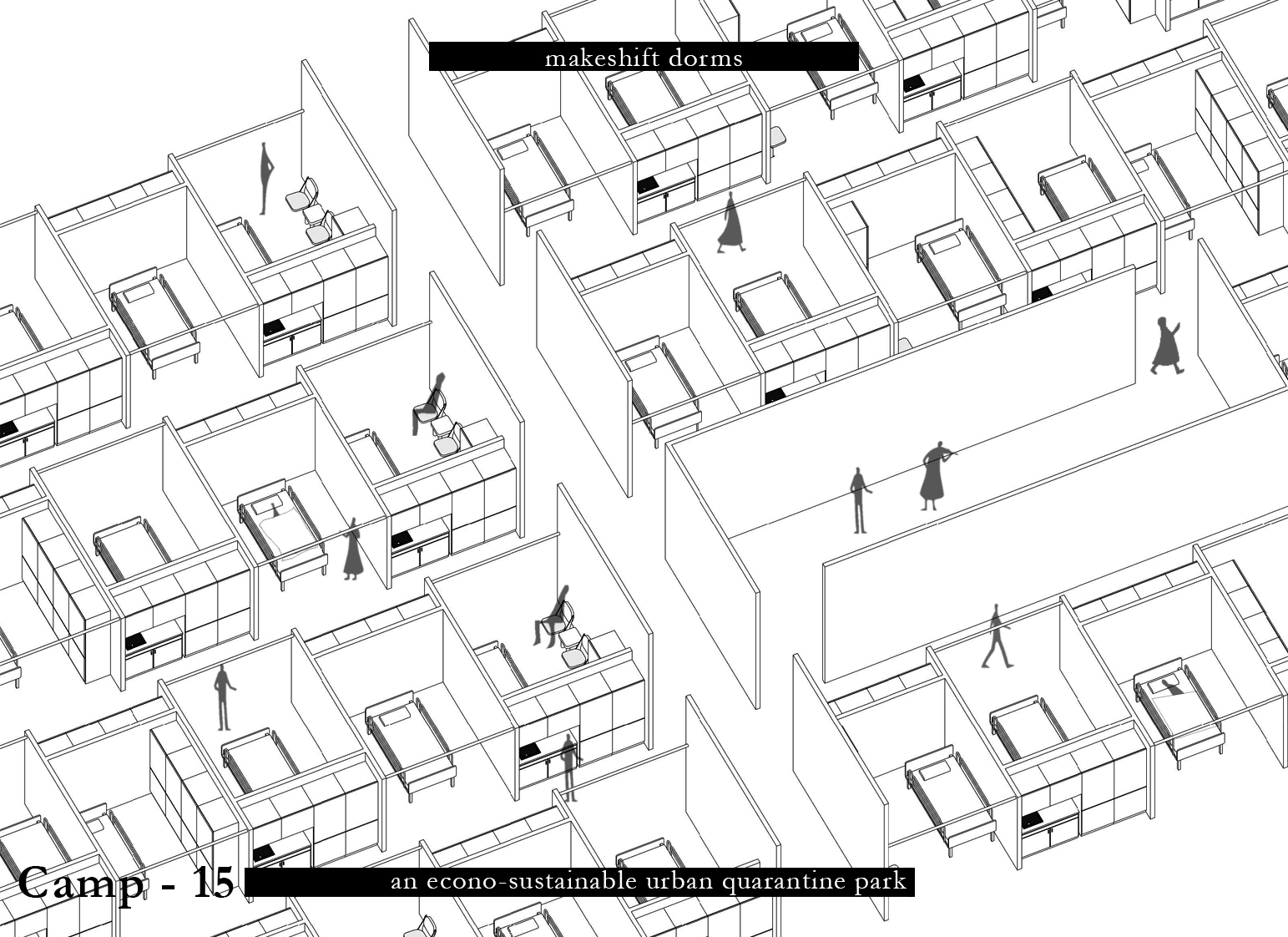
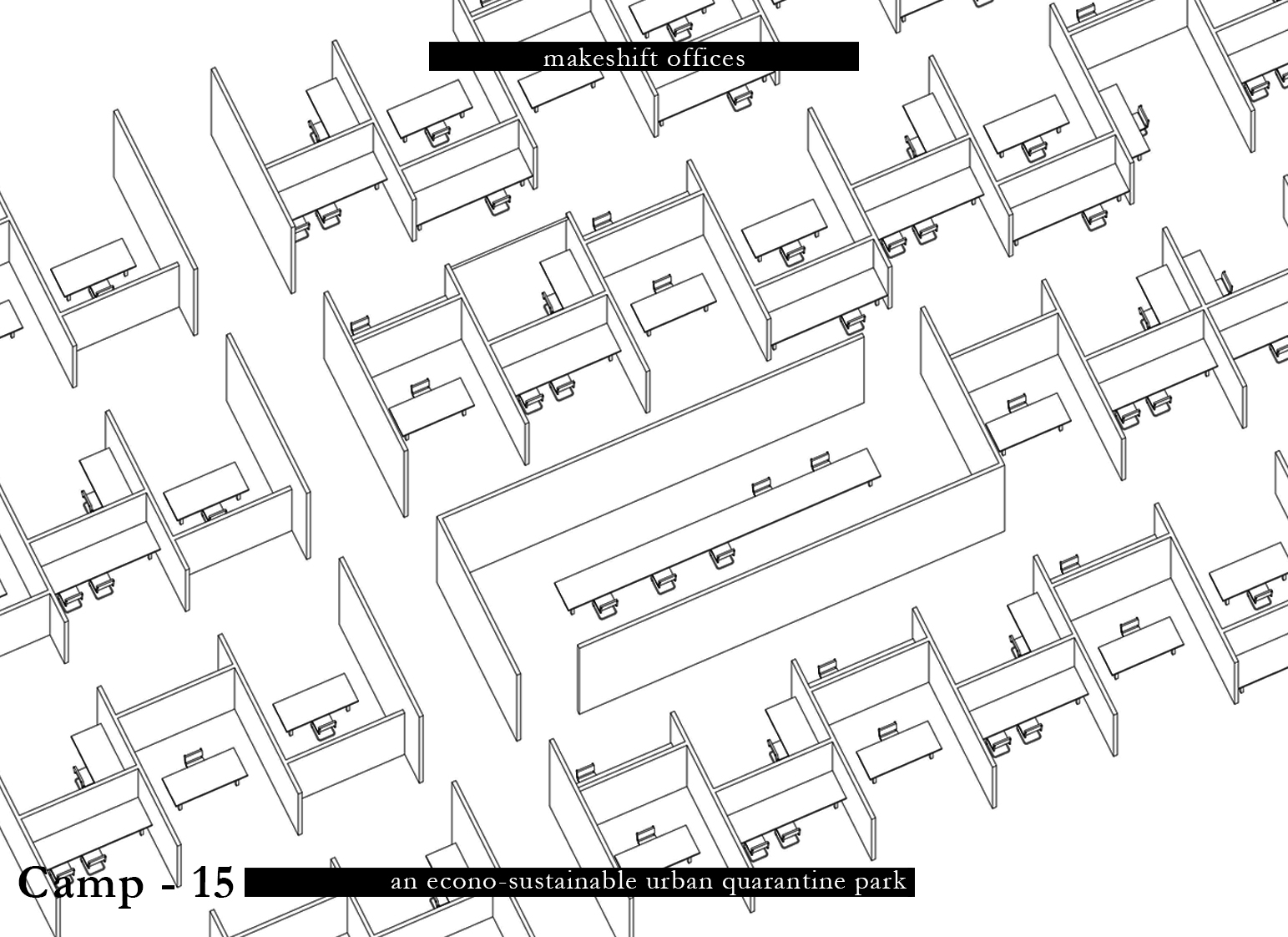
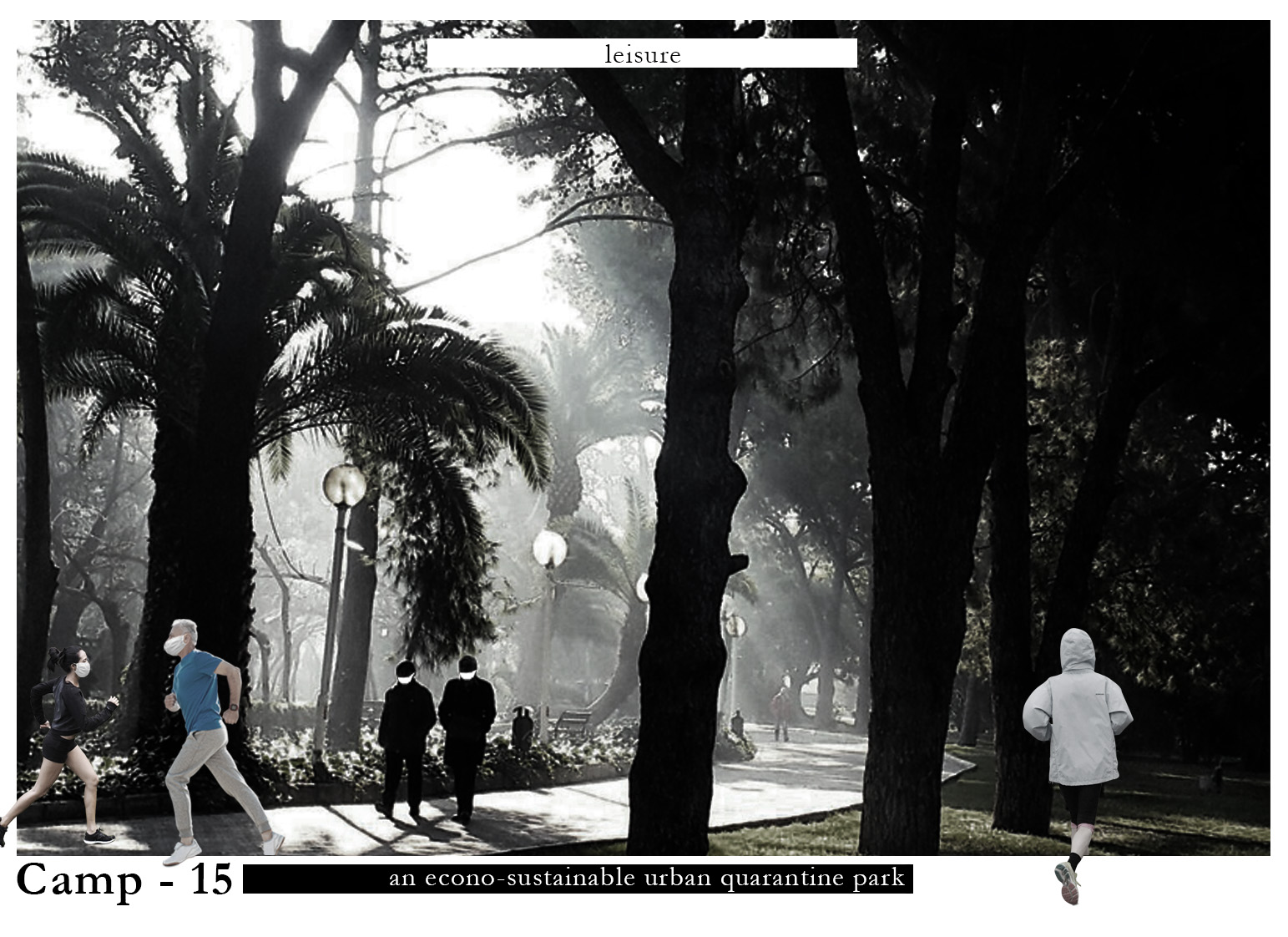
Coronavirus outbreak has stalled world economies. With the harshness of measures taken to stop the outbreak or at least contaminate the spread of the virus - like partial or full quarantine of cities - it is inevitable to start think if it is the doomsday for liberal economic system. To overcome the economic catastrophy of the outbreak; sustainable quarantine systems must emerge and should be adapted to each country, city and district that is fighting with coronavirus and still need to provide for its residents.
As public gatherings of any kind are banned because of high levels of virus risk and expected to be such for at least a year or two; public spaces as parks, congress buildings, cultural buildings, stadiums with their vast infrastructure and huge spaces provide perfect setting for framing them as quarantine zones.
Coronavirus infected patients may be divided into two groups: ones with mild or no symptoms who quarantine at home, and seriously ill people taken to intensive care units of hospitals. First group who are affected by virus as mild, if not at all may operate still under quarantine, but not alone.
CAMP-15 is the quarantine zone adapted for re-use from 52 ha urban park that is called Kulturpark of İzmir; an industrial and financial city with a population of 4.5 million on the Mediterranean Coast of Turkey. Park facilities such as showrooms, galleries, restaurants, warehouses and many opendoors areas are transformed into dormitories, offices and leisure areas for mild and no-symptom patients. Under 24-h observation from medics; this zone is where any Covid-19 Positive patient can go and live for 15 days until quarantine period is over.
CAMP-15 provides a sustainable 15-day-life-for-all. Patients may continue their work from makeshift offices inside Red-Zone - infrastructure run by other patients -, attend sporting activities with instructors - who may also be other patients -, eat at dining halls turned from park restaurants - served by other patients -, or work in makeshift dorms as nurses and get paid for their efforts.
As Kulturpark has many entrances, it is possible to seperate access points for different groups. Main access of patients and supplies for patients such as food and medicine is through a buffer-zone and checkpoints. Another gate close to patient dormitories is reserved for emergency acces, whereas medics and security access are also seperated. This kind of diversity is mandatory as there may be a need of shrink the radius of quarantine circle.
CAMP-15 is an urban respond to cities under quarantine-living. Isolation and social-distancing should and will be primary action for infection rates to fall but as the number of positive cases increase hugely, it is time to think about the mass-quarantine-systems and their economic sustainability as anyone who needs to work day to day to earn money may refuse to go into quarantine for 15 days. Isolating and quarantining infected people from the city and creating an ecosystem inside a quarantine zone is the way to go for people, cities and their economies.